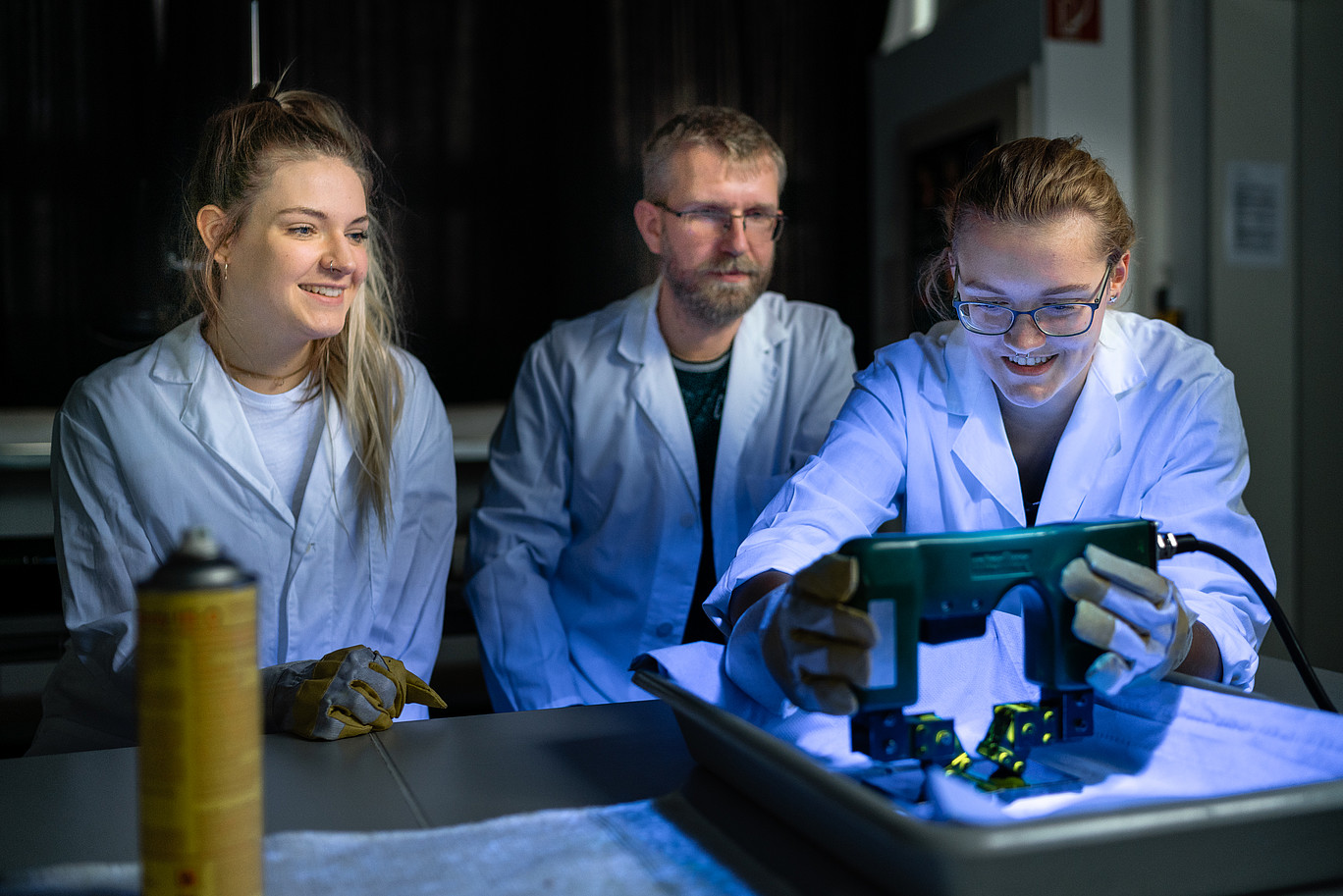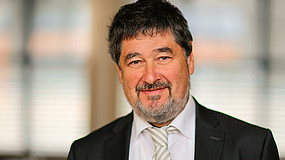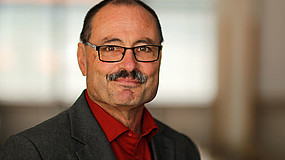
The Radiation Technology Laboratory is equipped to handle sealed radioactive substances (radiation sources) and to operate a facility for generating ionizing radiation, a neutron generator, as part of teaching and research on the basis of radiation protection legislation.
It is divided into a monitoring area and a control area with a temporary restricted area.
Properties of radioactivity
Natural and artificially produced radioactive substances, terrestrial radioactivity and radionuclides in food are investigated.
Furthermore, different types of radiation (alpha, beta, gamma and neutrons) can be examined with a focus on shielding and range or attenuation.
The necessary measuring devices, their structure and function, differences between individual detectors, measurement geometry and measurement statistics are taught.
The noble gas radon
This course explains how radon is formed, how it spreads and how it can enter a building and which devices are required to detect radon and thoron. Options for reducing radon exposure are examined.
The practical courses supplement the theoretical knowledge acquired through practical work with radiation sources and radiation measurement technology for the courses Radioecology, Dosimetry, Radiation Technology and Reactor Physics.
A selection of experiments is available for students to supplement their physics lessons.
A minimum age of 16 years is required for access to the laboratory. After receiving a lab coat and registering with an electronic personal dosimeter (EPD), they are instructed on how to behave in radiation protection areas and given introductory explanations on the topic.
The practicals are carried out in groups according to written instructions. Great importance is attached to recording and presenting the measurement results in tables and graphs. Afterwards, the results of the experiment can be discussed or compiled in the form of a protocol.
Before leaving the laboratory, the personal dose is determined using the EPD.
- GENIE 35 neutron generator for generating neutrons
- Gamma spectrometry measuring station with semiconductor detector
- Various radon and thoron measuring devices
- Liquid scintillation measuring device
- Thermoluminescence measuring device
- Various measuring devices for measuring alpha, beta, gamma and neutron radiation
Registration is only necessary for guided tours. Enrolled students will be informed of the internship dates as part of the relevant course.
House ZVIIc, Hall 4

